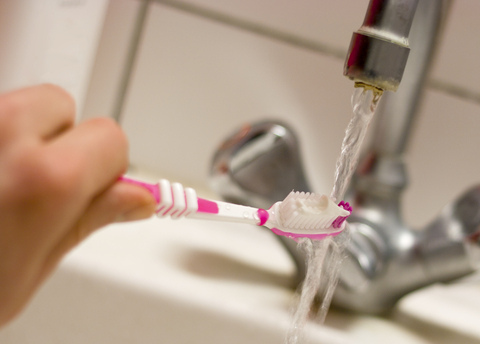February 9th, 2018

Valentine’s Day, also known as Saint Valentine’s Day, has been said to originate with a Catholic priest named Valentine several thousand year ago. Valentine defied the emperor at the time by secretly marrying men and their brides after the emperor had made it illegal to marry. Emperor Claudius II did this because he wanted as many single young men to fight in his war as he could get.
Valentine disobeyed the emperor’s edict by continuing to marry couples until he was sentenced to death. Before his execution, he sent a letter to a secret love and signed it “From your Valentine.” Dr Karina Gregg and our team have come up with some suggestions on how you can celebrate this Valentine’s Day, whether you have a valentine of your own or not.
Valentine's Day Ideas
- Enjoy a tasty treat. There are plenty of options when it comes to cooking and/or baking on Valentine’s Day. Make your significant other his or her favorite meal or sweet treat, or make your own favorite dish to enjoy on this day. Oh, and be sure to make enough for leftovers!
- Make a personalized card. Instead of buying a card from the grocery store, take the time to make your own for a loved one. People love handwritten notes, especially when it’s from someone special. If you’re single this Valentine’s Day, make a card for fellow single friend to brighten the day and remind the person that he or she is also loved.
- Watch a movie. We all know there are plenty of romance movies out there. Put on your favorite romantic comedy, or pick up your significant other’s favorite movie to watch together. Even better, if you’re single, pick up your own favorite movies to watch to pass the time this Valentine’s Day.
- Do nothing! We all know Valentine’s Day can sometimes get a lot of hype. If you’re worried about not making a reservation in time, don’t feel like planning an extravagant night out, or simply not in the holiday mood this year, spend your day sitting back and relaxing.
Valentine’s Day is a time to celebrate love and spend quality hours with the people you care about the most. Whether you’re in a relationship or single, take some time today to appreciate those you love in your life.
We wish you a happy Valentine’s Day celebration and look forward to seeing you at our San Marcos, CA office during your next appointment.
February 2nd, 2018

You might suspect that your wisdom teeth are starting to emerge, but knowing the signs of impacted wisdom teeth can help you be more proactive about your dental care. Impacted wisdom teeth can be extremely painful and can make your life truly miserable until they are removed. Therefore, looking for the early warning signs listed below, and seeing Dr Karina Gregg if you experience them, can help you conquer the problem before it conquers you.
There are three primary signs of impacted wisdom teeth. While every person may not have all three of these signs, you can usually expect to experience at least one of these if your wisdom teeth are impacted.
Unusual Pain
If you are feeling a type of teeth pain you've never felt before, especially when it is focused in the back area of your jaw, this may be a sign that you have a tooth impaction. You may be fortunate enough to catch it early, before all of your wisdom teeth become impacted, if you see Dr Karina Gregg as soon as you feel the pain.
Swollen Jaw
If your jaw is suddenly swollen and the area feels tender to the touch, you have a high chance of having an impacted tooth. Since the wisdom teeth are set so far back in your jaw, the swelling tends to show itself low in the jaw, towards the ears, when they are impacted.
Bleeding Gums
If your gums are bleeding, something you may notice when you see a pink or red tinged toothbrush, you may be dealing with a wisdom tooth issue. When the wisdom teeth are impacted, they put a lot of pressure on your back teeth and gums, which often leads to bleeding.
Visit our San Marcos, CA office as soon as possible if you have any of the above signs of impacted wisdom teeth. The sooner you get treatment, the sooner the pain will be behind you for good!
January 26th, 2018

You may have heard talk about the germs that can reside on your toothbrush and thought, “really?”
It’s true—there are several kinds of bacteria that can lurk on the bristles of your toothbrush, including streptococci, staphylococci, Herpes Simplex I, and the Influenza virus. To protect your toothbrush from bacteria, Dr Karina Gregg and our team want you to consider the following three tips:
- Wash your hands before and after brushing.
- Allow the brush to air dry after each use, as harmful bacteria dies after being exposed to oxygen. It is best to disinfect your toothbrush weekly and allow it to dry in between use. Store the toothbrush in an upright position to allow water to drain and dry faster
- Replace your toothbrush every three to four months, or after being ill. Worn bristles are less effective in properly cleaning your teeth, and can actually be damaging to teeth if used too long!
We hope these tips help! Feel free to give us a call at our San Marcos, CA office or ask us on Facebook if you have any questions!
January 19th, 2018

Yes, indeed! While brushing, flossing, and regular visits to San Elijo Dental are all key to maintaining a healthy smile and mouth, Dr Karina Gregg and our team want you to know the state of your oral health has a significant effect on your overall health.
Our mouths are full of bacteria—some good, and some harmful. Some types of bad bacteria can cause cavities, gingivitis and even periodontal (gum) disease. Without proper oral care and hygiene, these harmful types of bacteria are capable of entering your blood stream through inflamed gums, when inhaled through the mouth or through saliva.
Gum disease, in turn, has been linked to a number of health problems, researchers have found. These include:
- Heart disease: Gum disease may increase the risk of heart disease. Gum disease also is believed to worsen existing heart disease.
- Stroke: Gum disease may increase the risk of the type of stroke caused by blocked arteries.
- Diabetes: People with diabetes and periodontal disease may be more likely to have trouble controlling their blood sugar than diabetics with healthy gums.
- Premature birth: Women who suffer from gum disease during pregnancy may be more likely deliver their baby early, and it is likely her infant may be of low birth weight.
Dr Karina Gregg and our team at San Elijo Dental are experts in identifying and treating periodontal disease. Give us a call today at our convenient San Marcos, CA office to schedule an appointment to improve your oral health and your overall health, too!







 Website Powered by Sesame 24-7™
Website Powered by Sesame 24-7™